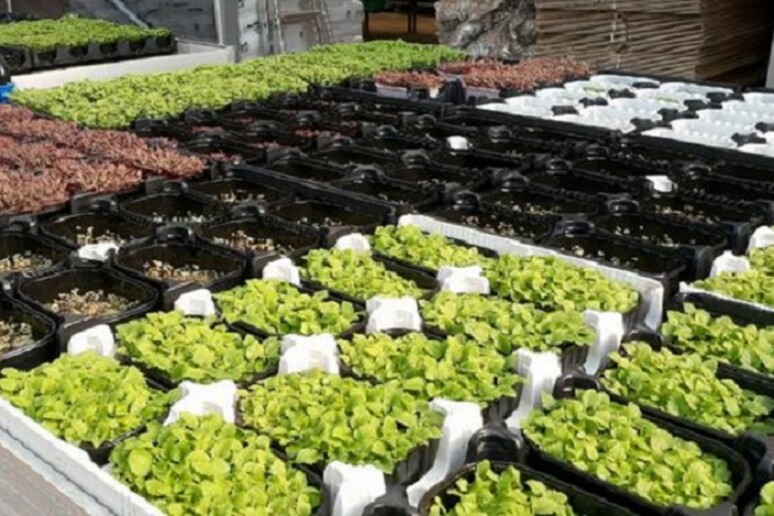Italian researchers have managed to grow microgreens enriched with iodine and with less potassium to meet the dietary needs of people with thyroid or kidney problems.
The breakthrough by experts at the National Research Council's Institute of Food Production Science (Ispa-Cnr) and Bari's Aldo Moro University was made thanks to a cultivation technique in which soil is replaced by a liquid in which nutritional substances are dissolved.
Tested in collaboration with a company in Puglia, the technique was described in a paper in the Journal of the Science of Food and Agriculture.
The team grew four types of vegetable (radish, pea, rocket and chard) focusing on control of two key nutrients for health: iodine and potassium.
Iodine is essential for the thyroid and some two billion people around the world have a deficiency of it, so it is recommended to take it via fish, milk and egg and the use of iodine-enriched salt.
However, the increasing popularity of vegan and vegetarian diets and the need for many people to reduce salt consumption due to hypertension have led to increasing demand for alternative sources of iodine.
The researchers' idea was to focus on the enrichment of microgreens, vegetables to be eaten in their first 15-20 days of life.
Vegetables with an iodine content of up to 14 times the level of those in non-fortified microgreens were obtained by using the nutritional solutions.
Microgreens with 45% lower levels of potassium were also grown for people who have to limit their consumption of this micro-nutrient due to chronic kidney diseases.
Riproduzione riservata © Copyright ANSA













